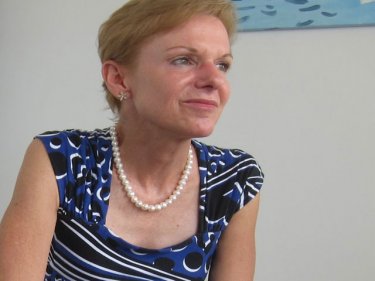PHUKET: American interest in Phuket is suddenly on the rise, with last week's visit to Phuket by amicable US Ambassador Kristie Kenney followed today by a visit from new US Consul General Elizabeth Pratt, plus a coincidental Amcham meeting tonight.
''I've never seen so much attention being paid to Phuket before,'' said one long-time American resident of Phuket familiar with the way that the embassy has operated in the past.
He rated today's strong deputation from the US Embassy in Bangkok as a pleasant change from the hit-and-run approach.
There are those who even unkindly describe the US embassy's regular ''outreach'' services to Phuket as ''outcast'' forays.
Just how interested are US embassy officials in Phuket, as distinct from Bangkok? Many nations now recognise that Phuket's position so close to Singapore, Kuala Lumpur and Jakarta, and its rising international status, makes it an increasingly important hub for tourism and business.
And more people - even in Bangkok - are having more to say about specific Phuket issues, as distinct from capital politics.
Yet today Ms Pratt told local reporters that the US was reluctant to enter into a debate about the behavior of local Phuket tuk-tuk drivers. To a certain extent that's precisely what any good diplomat would say.
However, away from the media spotlight, the US has a huge interest in both retaining its strategic relationship with Thailand and protecting US citizens.
Phuket is important in terms of both strategy and protection. That's more obvious now, with China winning friends.
Most Americans visiting Phuket lately have come on board the increasing number of US warships that are using Phuket for shore leave. The island is well-placed geographically and sailors and Marines have taken a liking to Phuket and the Andaman.
The relationship suits both Phuket and US personnel.
Yet imagine what would happen if those sailors and Marines walked off the warships without being given very direct warnings about not using the jet-skis and the tuk-tuks, or about the other obvious positives and pitfalls of Phuket.
It's certain that if American service people used tuk-tuks and jet-skis and local taxis and happened to be among the victims of disputes, Ms Pratt would have been far less diplomatic today.
American concern was greatest last year when the US was forced to send an emissary to talk to local officials about a succession of three blockades of US warships by local taxi drivers at Phuket's east coast deep sea port.
Those difficult days appear to be over, at least as far as US warships are concerned, with a stand-off reached with the local drivers.
The drivers focus instead now on removing as much money as possible from the pockets of passengers arriving on Phuket on cruise ships.
Are there American passengers on those cruise liners? Yes, of course there are.
Are those passengers content when they learn that they are paying exorbitant fares for taxis on Phuket, and that the US embassy believes it's up to the local administration to resolve these kinds of issues? We think not.
Perhaps Ms Pratt really needs to come on a private visit to Phuket, staying at any quality resort, book any kind of excursion, and wait out the front of the foyer for the tour driver to arrive.
Given the principled US stand in favor of competition, it's odd that the US seems reluctant to join the debate and offer some sound advice to local authorities in the best interests of all residents and visitors.
The local authorities themselves have initiated the continuing discussion, through the quarterly meetings between Phuket's honorary consuls and Phuket's Governor and the island's leaders.
We know that the US Ambassador and her Consul General both wholeheartedly support innovation.
The honorary consuls' meeting every three months is the most beneficial recent innovation for Phuket, for local administration, and for the increasing number of international visitors and residents.
Given the need for the continued safety of American visitors to Phuket, both in uniform and out of uniform, it would be great to see the US represented at the next honorary consuls' meeting in November. It could even be coordinated with an ''outreach.''










In another interview, Ms. Pratt mentioned that no American had been a victim of violence at the hands of taxi drivers. I would like to point out that June 10th of this year an American was beaten in broad daylight for parking in the "wrong" place behind Jungceylon. I am sure there are more cases we don't hear about. I hope it doesn't take an American getting killed before they decide it's time to join the debate.
Posted by ScubaNinja on September 17, 2011 03:57